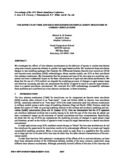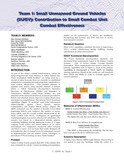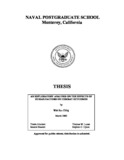The Effects of Time Advance Mechanism on Simple Agent Behaviors in Combat Simulations
| dc.contributor.author | Al Rowaei, Ahmed A. | |
| dc.contributor.author | Buss, Arnold, H. | |
| dc.contributor.author | Leiberman, Stephen | |
| dc.date.accessioned | 2014-01-29T23:39:22Z | |
| dc.date.available | 2014-01-29T23:39:22Z | |
| dc.date.issued | 2011 | |
| dc.identifier.uri | https://hdl.handle.net/10945/38629 | |
| dc.description | Proceedings of the 2011 Winter Simulation Conference S. Jain, R.R. Creasey, J. Himmelspach, K.P. White, and M. Fu, eds. | en_US |
| dc.description.abstract | We investigate the effects of time advance mechanisms on the behavior of agents in combat simulations using some simple scenarios relevant to combat and agent-based models. We implement these simulation designs in two modeling packages that illustrate the differences between discrete-time simulation (DTS) and discrete-event simulation (DES) methodologies. Many combat models use DTS as their simulation time advance mechanism. We demonstrate that the presence and size of the time step as a modeling component can have a substantial impact on the basic characteristics of agent and simulation performance. We show that the use of a DTS method can degrade the modeling accuracy of changes in agent sensor range and detection outcomes, and also can compromise the ability of agents to travel to specific target destinations in a spatial simulation environment. We conclude that DES methodology | en_US |
| dc.rights | This publication is a work of the U.S. Government as defined in Title 17, United States Code, Section 101. Copyright protection is not available for this work in the United States. | en_US |
| dc.title | The Effects of Time Advance Mechanism on Simple Agent Behaviors in Combat Simulations | en_US |
| dc.type | Conference Paper | en_US |
| dc.contributor.department | Modeling, Virtual Environments, and Simulation Institute (MOVES) |





